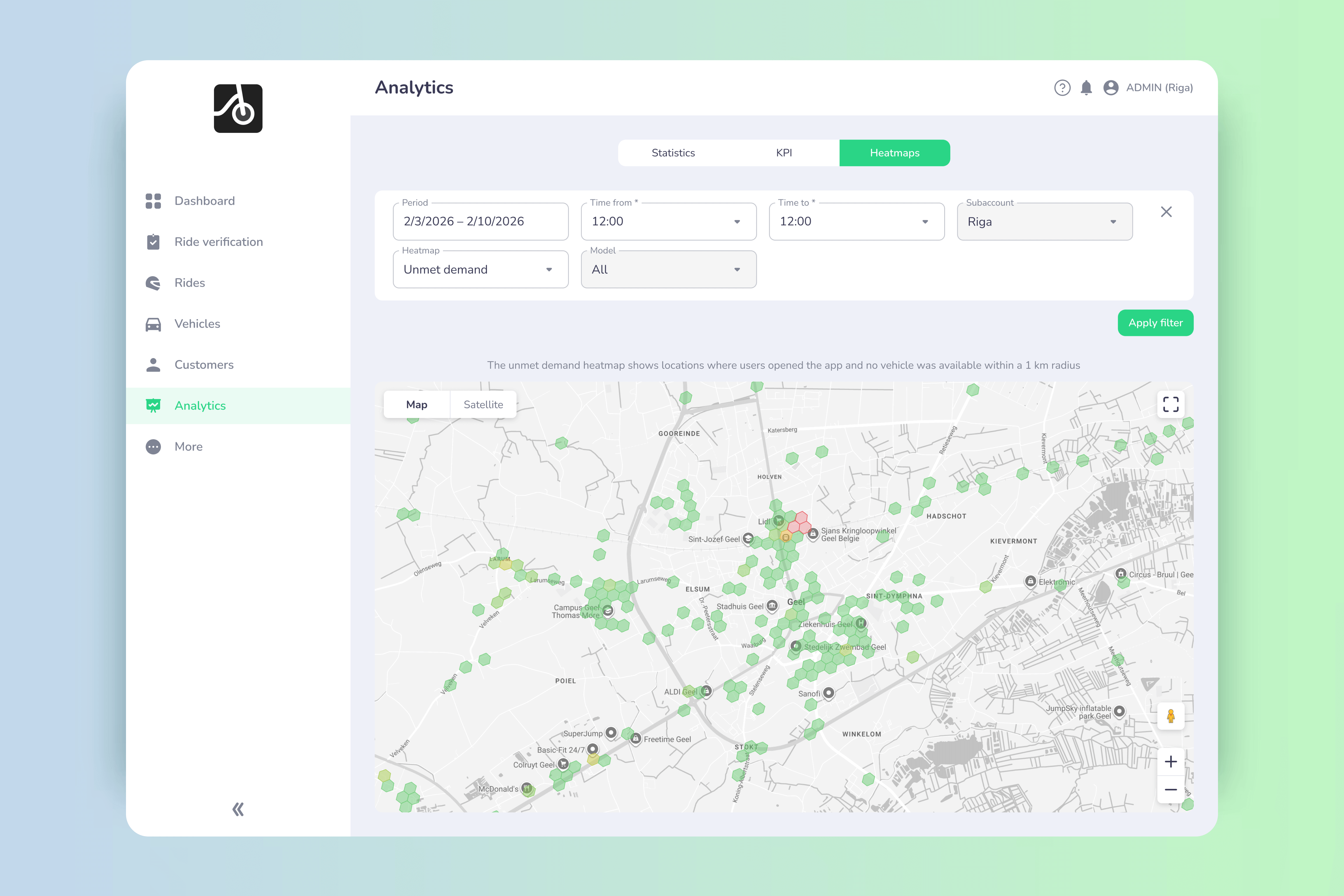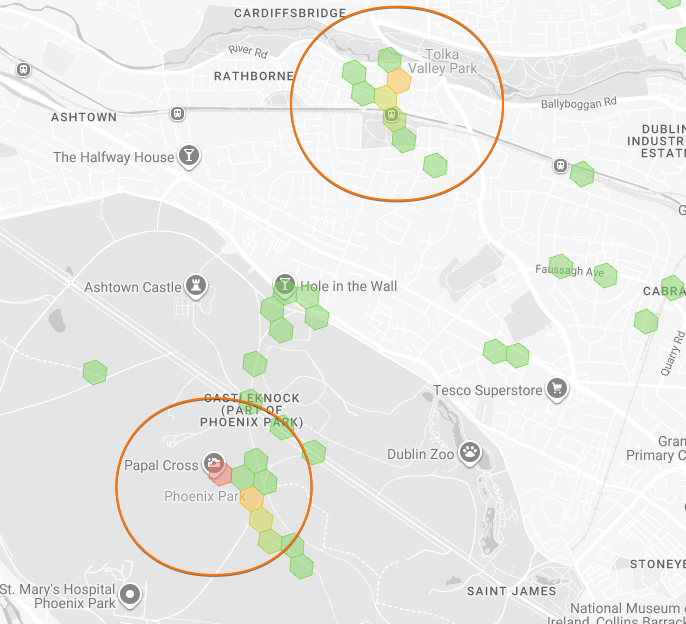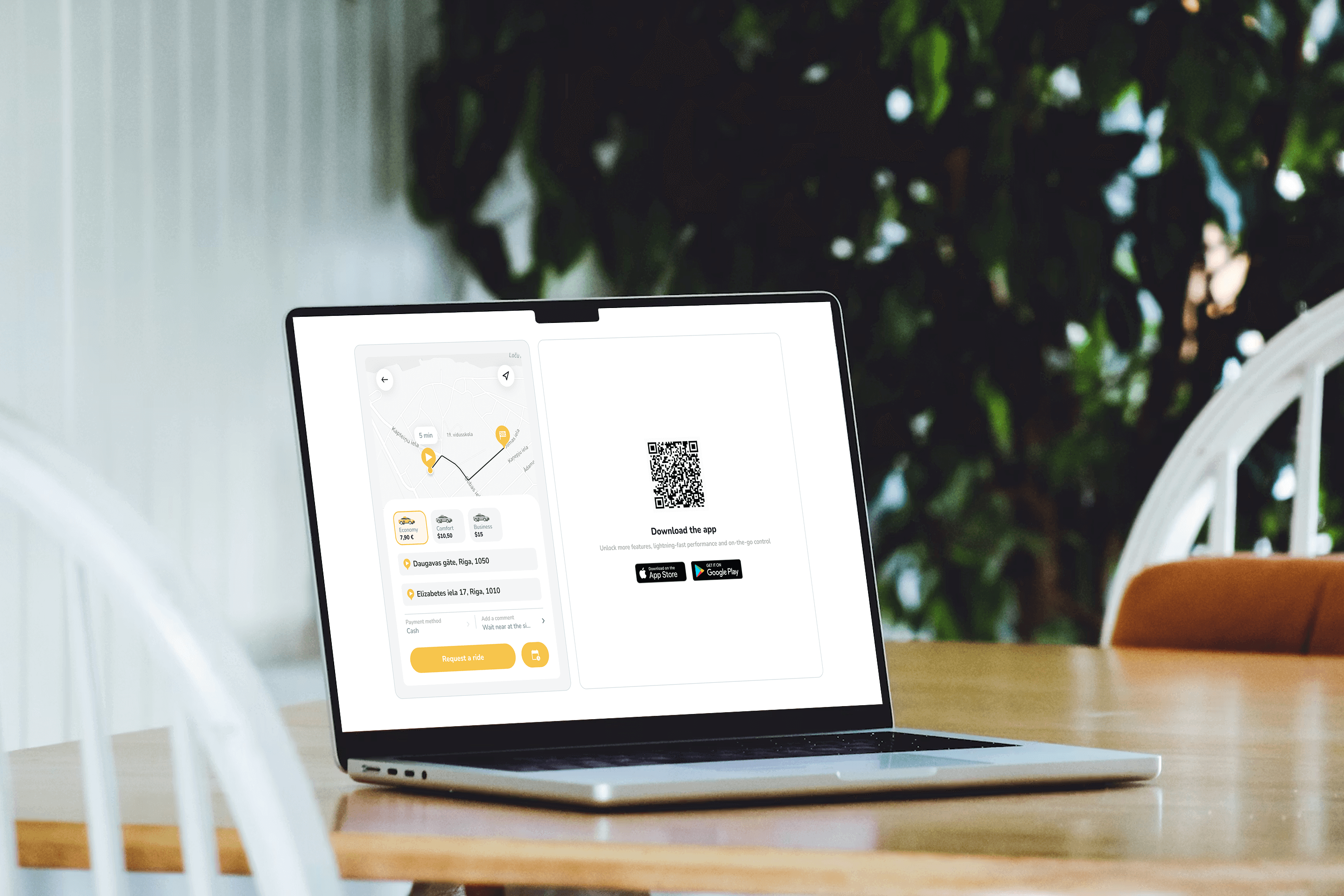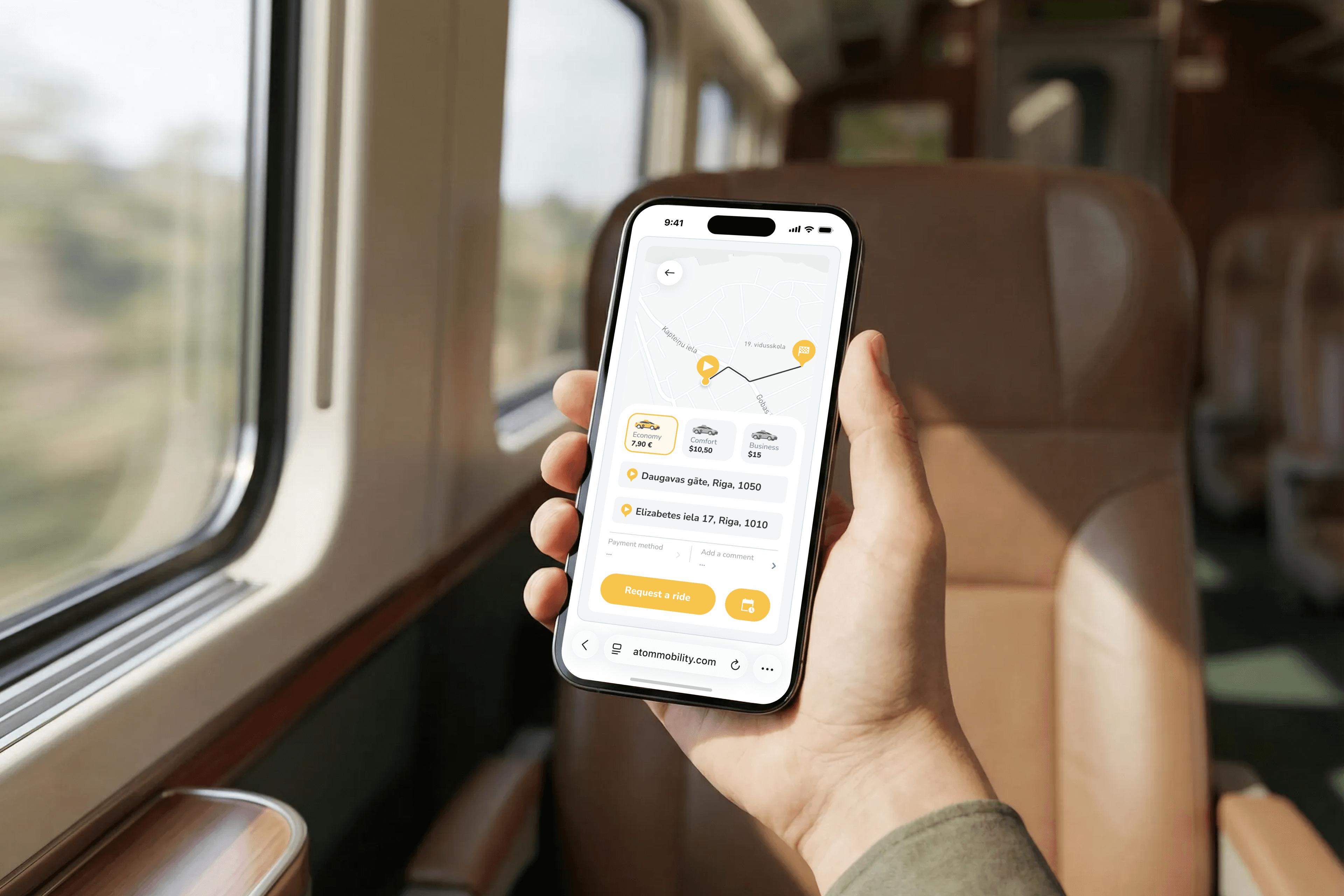
Doing micro-mobility business means doing business with hundreds of thousands of customers. On the other hand, expanding into new markets means that your business has to comply with a lot of different regulations. And this is not only in terms of micro-mobility, but also, for example, accounting. However, this might not be as complicated as it sounds provided that you choose the right partner. And Space Invoices could be the partner to choose when considering centralized invoicing.
“Our business is not sexy per se and we understand that invoicing will never be interesting. However, we are interested in devising solutions that are useful for our customers. The less you care about invoicing, the better we are doing our job,” says Space Invoices CEO Boštjan Pišler. With its API solution, the company is helping developers to focus on building software instead of dealing with financial calculations and invoicing legislation.
Space Invoices has two approaches to its business model. When the customer is a multi-tenant business, the company charges per every customer. However, if the customer has a big volume of invoices that are issued monthly, a tiny fee is added for every invoice created. Boštjan says that although the company works with a small number of clients, its service is actually used by about 8,000 businesses across Europe and Australia. It also plans to launch in Brazil and Mexico in the near future, as well as add support for North American countries. Documents can currently be sent in 14 different languages. “As a software provider, we need to ensure while doing business in all those different countries that we also send invoices to the government if needs be. And it is important for companies that operate in these countries that they have a service provider that meets all government requirements.” According to Boštjan, “We do.”
Creates an API that becomes a successful business
Bostjan developed and used to run a classic online invoicing software on the local market. This is where the idea for Space Invoices comes from. There was apparently a need for an easy-to-integrate invoicing API. Bostjan's development agency used a lot of different APIs for different parts of the software they were building for clients, “We managed to create a really good invoicing API for developers. I came up with the idea to create Space Invoices that could be a solution, where there is an existing API and developers can implement it to the software to easily create invoices with a couple of lines of code. We now have a multi-tenant type of approach to the API. If you compare this to traditional solutions, which mostly just add API to invoicing functionality, we rebuild the whole system to support a multi-tenant approach with an API first approach and developers in mind.”
This is how ATOM also uses the system. It is simple for micro-mobility service users because they only need to provide primary data. Afterward, ATOM can automatically create accounts and link them to businesses. Invoices are also created automatically. And then it is up to the service provider to decide how and at what stage they will process invoices.
Dashboard and additional features
What does the end-user see on the dashboard inside the system? It depends on the amount of data the company would like to make available. “We have customers that do not show anything through dashboards. But in the case of ATOM, we have a more complicated implementation. The end-user primarily views issued invoices. Each invoice is also individually available so it is easy to find out what the price was, and what the service was, etc. And it is possible to download another copy of each pdf file,” reveals Boštjan before adding that a lot more different options are available. In this case, ATOM's system triggers the functionality, and then Space Invoices’ API processes the remaining data.
In this case payment gateway implementation is covered by ATOM. Payments are processed before the invoice in the app. In the case of a refund, it is also up to ATOM to decide if there is a need to issue a credit note invoice. So this is also triggered. Space Invoices are currently working on a solution to make it possible to accept payments via the invoice - if the customer opts not to pay the invoice directly, he later receives a form enabling him to pay online via the invoice.
ATOM uses the Space Invoices system to send documents to their clients. “The sender is our address, but the e-mail address for replies is the one indicated by ATOM. We have multiple templates or PDFs to choose from. They can be edited by color, logo, etc. The whole design experience can be fully customized,” says Boštjan. Space Invoices use Sendgrid for e-mails. Boštjan explains that they have a 99% sender score. Moreover, sending invoices doesn't harm their service. Most of the time, content is simple and definitely not promotional, as it only contains a pdf. Space Invoices do not have any spam reports, because customers never report the invoice as spam.
Country specific solutions
Most countries require invoices although the situation can differ from country to country. In Canada and the US, for example, invoicing requirements are slightly less strict and an invoice is not as important a document as it is in South America and Europe. So sometimes specific statements have to appear on the invoice in order for the recipient to make this document valid. Whenever VAT is applied, it is important that the recipient company can correctly deduce the VAT. Space Invoices also does the customization regarding reporting to governments. “We are still working on those and always are adding additional options. And, in general, we don't have a lot of clients so close collaboration is possible along with an individual approach to solving different challenges,” explains Boštjan.
Talk to ATOM Mobility team to activate online invoicing for your operations: support@atommobility.com
Click below to learn more or request a demo.

📉 Every unmet search is lost revenue. The unmet demand heatmap shows where users actively searched for vehicles but none were available - giving operators clear, search-based demand signals to rebalance fleets 🚚, improve conversions 📈, and grow smarter 🧠.
Fleet operators don’t lose revenue because of lack of demand - they lose it because demand appears in the wrong place at the wrong time. That’s exactly the problem the Unmet demand heatmap solves.
This new analytics layer from ATOM Mobility shows where users actively searched for vehicles but couldn’t find any within reach. Not guesses. Not assumptions. Real, proven demand currently left on the table.
What is the unmet demand heatmap?
The unmet demand heatmap highlights locations where:
- A user opened the app
- Actively searched for available vehicles
- No vehicle was found within the defined search radius
In other words: high-intent users who wanted to ride, but couldn’t. Unlike generic “app open” data, unmet demand is recorded only when a real vehicle search happens, making this one of the most actionable datasets for operators.
Why unmet demand is more valuable than app opens
Many analytics tools track where users open the app (ATOM Mobility provides this data too). That’s useful - but incomplete. Unmet demand answers a much stronger question:
Where did users try to ride and failed? That difference matters.
Unmet demand data is:
✅ Intent-driven (search-based, not passive)
✅ Directly tied to lost revenue
✅ Immediately actionable for rebalancing and expansion
✅ Credible for discussions with cities and partners

How it works
Here’s how the logic is implemented under the hood:
1. Search-based trigger. Unmet demand is recorded only when a user performs a vehicle search. No search = no data point.
2. Distance threshold. If no vehicle is available within 1,000 meters, unmet demand is logged.
- The radius can be customized per operator
- Adaptable for dense cities vs. suburban or rural areas
3. Shared + private fleet support. The feature tracks unmet demand for:
- Shared fleets
- Private / restricted fleets (e.g. corporate, residential, campus)
This gives operators a full picture across all use cases.
4. GPS validation. Data is collected only when:
- GPS is enabled
- Location data is successfully received
This ensures accuracy and avoids noise.
Smart data optimization (no inflated demand)
To prevent multiple searches from the same user artificially inflating demand, the system applies intelligent filtering:
- After a location is stored, a 30-minute cooldown is activated
- If the same user searches again within 30 minutes And within 100 meters of the previous location → the record is skipped
- After 30 minutes, a new record is stored - even if the location is unchanged
Result: clean, realistic demand signals, not spammy heatmaps.
Why this matters for operators
📈 Increase revenue
Unmet demand shows exactly where vehicles are missing allowing you to:
- Rebalance fleets faster
- Expand into proven demand zones
- Reduce failed searches and lost rides
🚚 Smarter rebalancing
Instead of guessing where to move vehicles, teams can prioritize:
- High-intent demand hotspots
- Time-based demand patterns
- Areas with repeated unmet searches
🏙 Stronger city conversations
Unmet demand heatmaps are powerful evidence for:
- Permit negotiations
- Zone expansions
- Infrastructure requests
- Data-backed urban planning discussions
📊 Higher conversion rates
Placing vehicles where users actually search improves:
- Search → ride conversion
- User satisfaction
- Retention over time
Built for real operational use
The new unmet demand heatmap is designed to work alongside other analytics layers, including:
- Popular routes heatmap
- Open app heatmap
- Start & end locations heatmap
Operators can also:
- Toggle zone visibility across heatmaps
- Adjust time periods (performance-optimized)
- Combine insights for strategic fleet planning
From missed demand to competitive advantage
Every unmet search is a signal. Every signal is a potential ride. Every ride is revenue. With the unmet demand heatmap, operators stop guessing and start placing vehicles exactly where demand already exists.
👉 If you want to see how unmet demand can unlock growth for your fleet, book a demo with ATOM Mobility and explore how advanced heatmaps turn data into decisions.

🚕 Web-booker is a lightweight ride-hail widget that lets users book rides directly from a website or mobile browser - no app install required. It reduces booking friction, supports hotel and partner demand, and keeps every ride fully synced with the taxi operator’s app and dashboard.
What if ordering a taxi was as easy as booking a room or clicking “Reserve table” on a website?
Meet Web-booker - a lightweight ride-hail booking widget that lets users request a cab directly from a website, without installing or opening the mobile app.
Perfect for hotels, business centers, event venues, airports, and corporate partners.
👉 Live demo: https://app.atommobility.com/taxi-widget
What is Web-booker?
Web-booker is a browser-based ride-hail widget that operators can embed or link to from any website.
The booking happens on the web, but the ride is fully synchronized with the mobile app and operator dashboard.
How it works (simple by design)
No redirects. No app-store friction. No lost users.
- Client places a button or link on their website
- Clicking it opens a new window with the ride-hail widget
- The widget is branded, localized, and connected directly to the operator’s system
- Booking instantly appears in the dashboard and mobile app
Key capabilities operators care about

🎨 Branded & consistent
- Widget color automatically matches the client’s app branding
- Feels like a natural extension of the operator’s ecosystem
- Fully responsive and optimized for mobile browsers, so users can book a ride directly from their phone without installing the app
📱 App growth built in
- QR code and App Store / Google Play links shown directly in the widget
- Smooth upgrade path from web → app
⏱️ Booking flexibility
- Users can request a ride immediately or schedule a ride for a future date and time
- Works the same way across web, mobile browser, and app
- Scheduled bookings are fully synchronized with the operator dashboard and mobile app
🔄 Fully synced ecosystem
- Country code auto-selected based on user location
- Book via web → see the ride in the app (same user credentials)
- Dashboard receives booking data instantly
- Every booking is tagged with Source:
- App
- Web (dashboard bookings)
- Booker (website widget)
- API
🔐 Clean & secure session handling
- User is logged out automatically when leaving the page
- No persistent browser sessions
💵 Payments logic
- New users: cash only
- Existing users: can choose saved payment methods
- If cash is not enabled → clear message prompts booking via the app
This keeps fraud low while preserving conversion.
✅ Default rollout
- Enabled by default for all ride-hail merchants
- No extra setup required
- Operators decide where and how to use it (hotel partners, landing pages, QR posters, etc.)
Why this matters in practice
Web-booker addresses one of the most common friction points in ride-hailing: users who need a ride now but are not willing to download an app first. By allowing bookings directly from a website, operators can capture high-intent demand at the exact moment it occurs - whether that is on a hotel website, an event page, or a partner landing page.
At the same time, Web-booker makes partnerships with hotels and venues significantly easier. Instead of complex integrations or manual ordering flows, partners can simply place a button or link and immediately enable ride ordering for their guests. Importantly, this approach does not block long-term app growth. The booking flow still promotes the mobile app through QR codes and store links, allowing operators to convert web users into app users over time - without forcing the install upfront.
Web-booker is not designed to replace the mobile app. It extends the acquisition funnel by adding a low-friction entry point, while keeping all bookings fully synchronized with the operator’s app and dashboard.
👉 Try the demo
https://app.atommobility.com/taxi-widget
Want to explore a ride-hail or taxi solution for your business - or migrate to a more flexible platform? Visit: https://www.atommobility.com/products/ride-hailing


